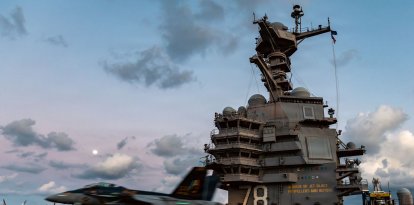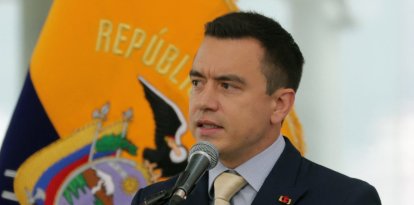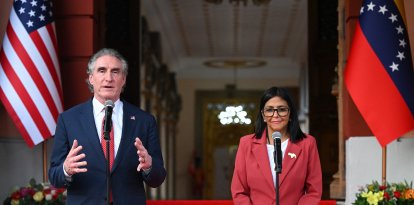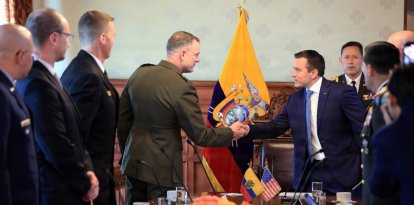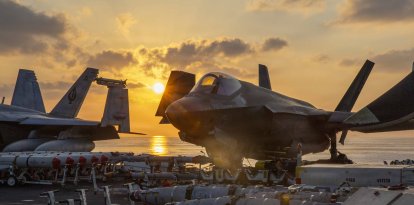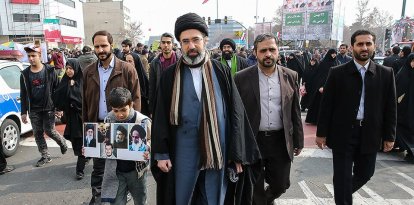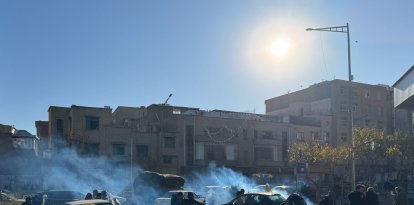Israeli tanks roll into Rafah and IDF kills dozens of Hamas terrorists in biggest Gaza battle in two months
In Jabalya, in the north of the enclave, a major confrontation took place between Israeli forces and fighters of the terrorist group.

(Israeli Army / AFP)
This Tuesday, May 14, Israel strengthened its offensive in Rafah thanks to the advance of its tanks and, in addition, killed dozens of Hamas terrorists in the largest battle fought in Gaza in the last two months.
In northern Gaza, in Jabalya, the IDF’s 98th Division fought and killed approximately 80 fighters, destroying rocket launchers and weapons manufacturing facilities in the heart of Jabalya, according to Rear Admiral Daniel Hagari, an Israeli spokesman.
The IDF had already pushed deep into Jabalya between Saturday and Sunday, however, they had to wait until Tuesday to find and confront a significant number of the reconstituted Hamas forces that have moved into the northern area of Loop.
“Until Tuesday, fights in Jabalya since January had only involved IDF altercations with smaller terror cells, often of only a handful of Hamas fighters at a time,” The Jerusalem Post reported.
This is the last major battle between the IDF and Hamas since the new offensive inside Shifa Hospital in mid-March. That significant offensive, which caused much international commotion, lasted between one and two weeks and generated a great impact on the war in favor of Israel.
The major battle in Jabalya added to the advance in Rafah, shows that the Israeli Army is rapidly going on the offensive even though allies such as the United States have called on Israel to moderate pressure against Hamas in southern Gaza.
Rear Admiral Hagari briefly explained that Israel is resuming offensives in areas throughout virtually all of Gaza, even in areas where the IDF had previously triumphed.
“We are operating with determination in all three parts of the Gaza Strip. Forces from the air, land and sea are simultaneously striking terrorist targets,” said Hagari, referring to the north, center and south of the enclave.
Israeli authorities also reported that four Israeli soldiers were seriously injured on Tuesday in separate battles with terrorists throughout the Gaza Strip, and another ten soldiers suffered minor injuries.
In Rafah, Israeli forces hit some residential areas with their tanks where more than a million people had sought refuge. For this reason, Israel has increased its calls for civilians to evacuate parts of Rafah as UNRWA, the main United Nations aid agency operating in the enclave, estimates that some 450,000 people have fled the city since May 6.
“They are moving to places such as Al-Mawasi, a sandy coastal strip that aid agencies say lacks sanitary and other facilities to host displaced people,” Reuters reported.
The Israeli advance on Rafah has generated much international controversy.
First, the offensive comes just before US national security adviser Jake Sullivan visits Israel and Saudi Arabia over the coming weekend. A visit that, according to US media reports, is now problematic because the Israeli State had supposedly committed not to deepen its operations in Rafah before Sullivan’s visit.
Meanwhile, the spokesman for the UN secretary general, Antonio Guterres, questioned the Israeli escalation in Rafah and the rocket fire by Hamas during the fighting.
“Civilians must be respected and protected at all times, in Rafah and elsewhere in Gaza. For people in Gaza, nowhere is safe now,” said the Guterres spokesperson.
However, the most significant diplomatic conflict of the day was between Egypt and Israel.
In principle, the Israeli Foreign Minister, Israel Katz, announced that he spoke with his counterparts in Germany and the United Kingdom to pressure Egypt so that the country bordering Gaza allows trucks with humanitarian aid to pass through to the enclave.
“Yesterday, I spoke with UK Foreign Secretary [David Cameron] and German Foreign Minister [Annalena Baerbock] about the need to persuade Egypt to reopen the Rafah crossing to allow the continued delivery of international humanitarian aid to Gaza,” Katz announced in a post on X. “The world places the responsibility for the humanitarian situation on Israel, but the key to preventing a humanitarian crisis in Gaza is now in the hands of our Egyptian friends.”
The publication did not go down well in Egypt, which responded harshly to Israel’s accusations.
The office of the Egyptian foreign minister, Sameh Shoukry, said it “strongly denounced the desperate attempts of the Israeli side to hold Egypt responsible for the unprecedented humanitarian crisis witnessed in the Gaza Strip, which is a direct result of indiscriminate Israeli atrocities committed against the Palestinians for more than seven months.”
The office basically accused Israel of distorting the facts, generating a much angrier climate of tension between Egypt and Israel, which is preparing to continue advancing in Rafah, seeking the total elimination of the Hamas terrorist group.














